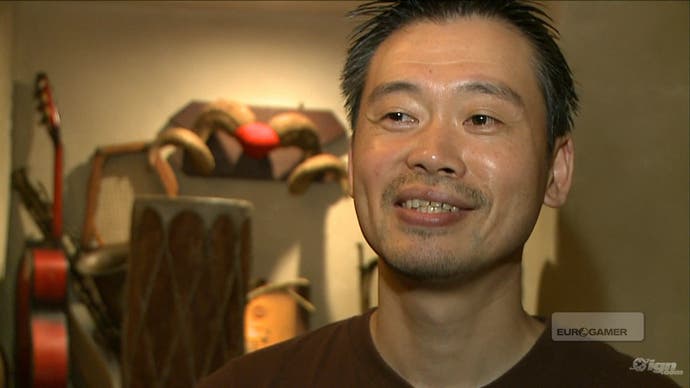An Englishman in New Tokyo
The Westerners saving the Japanese games industry from within.
The End of the World As We Know It
"Japan is over. We're done. Our game industry is finished." The now infamous proclamation, spoken by Capcom's Keiji Inafune at the 2009 Tokyo Game Show, was punctuated by a thumbs-down gesture, mimicking the plunge the Japanese games industry has undergone in recent years.
The figures back him up. Inafune's comment came after a 25 per cent drop in Japanese hardware and software sales in the first half of 2009, at an event which had seen a 5 per cent drop in attendance over the previous year. Even if that spark of world-beating Japanese design inspiration can still be found in contemporary titles such as Super Mario Galaxy, The Last Guardian and Demon's Souls, the grim financial realities of the situation are far more evident.
But how did Japan get here? What does it need to do to fix itself? Is it too late to hope that the world's greatest exporter of games can rise again to compete with the West?
"The golden days of Japanese games in the eighties and nineties were based on strength in technology and creative ideas. But nowadays entertainment is much more about culture, and global appeal." At 29 Dewi Tanner, director of development at NanaOn-Sha, holds one of the most senior positions a foreigner enjoys in Japanese development.
The quietly spoken Welshman sees Japan's problem as one of creative introversion, which has led to a failure to stay abreast of Western advances. "Japan has a very strong domestic creative economy - movies and music made here are seldom expected to sell abroad, and they don't need to because there is such high demand domestically.

"This success has proved to be a double-edged sword. For starters, people aren't motivated to learn English. A direct consequence of this is that Japanese programmers cannot participate so well in software forums, where cutting edge techniques are shared. Waiting for badly translated, reduced-content 'help' files puts them way behind the curve.
"On top of this, Japanese developers aren't really participating in global trends such as Facebook or Twitter, so they aren't a part of the global mindset. If anything, lately the marketplace here has become even more introverted. Nobody here has heard of Twilight, let alone the latest internet meme (although bizarrely Susan Boyle is making an impact). Any games 'targeted' at the West will have a hard time because usually they are being targeted at what Japanese perceive the West to be; more often than not the subtleties of nuance are missed.
"A third problem is scale of quality - what domestically here would be deemed to be a decent product may not cut the mustard abroad. The greater this gap becomes, the harder and more intimidating it is to make the jump."








